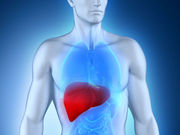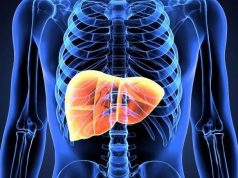Hepatic BA, cholesterol deficient in morbid obesity; deficiencies counteracted by caloric restriction
MONDAY, March 20, 2017 (HealthDay News) — Acute caloric restriction normalizes hepatic bile acid (BA) and cholesterol deficiency that is seen in morbidly obese women, according to a study published online March 6 in the Journal of Internal Medicine.
Sara Straniero, Ph.D., from Karolinska University Hospital in Stockholm, and colleagues monitored 10 morbidly obese women on days zero, three, seven, 14, and 28 after initiating a low-calorie diet. They collected serum and determined liver size and fat content. The results were compared with those from 54 non-obese women who served as controls.
The researchers found that, compared with controls, the obese group had elevated synthesis of both BAs and cholesterol and serum levels of BAs and proprotein convertase subtilisin/kexin type 9 (PCSK9) at baseline. BA and cholesterol synthesis and serum BA and PCSK9 levels normalized after three days on the low-calorie diet, while low-density lipoprotein cholesterol increased. There was no change in fibroblast growth factor 19 and triglyceride levels, and a 10 percent decrease was seen in liver volume.
“The results suggest that hepatic BAs and cholesterol are deficient in morbid obesity,” the authors write. “Caloric restriction rapidly counteracts these deficiencies, normalizing BA and cholesterol synthesis and circulating PCSK9 levels, indicating that overproduction of cholesterol in enlarged peripheral tissues cannot explain this phenotype.”
Copyright © 2017 HealthDay. All rights reserved.








